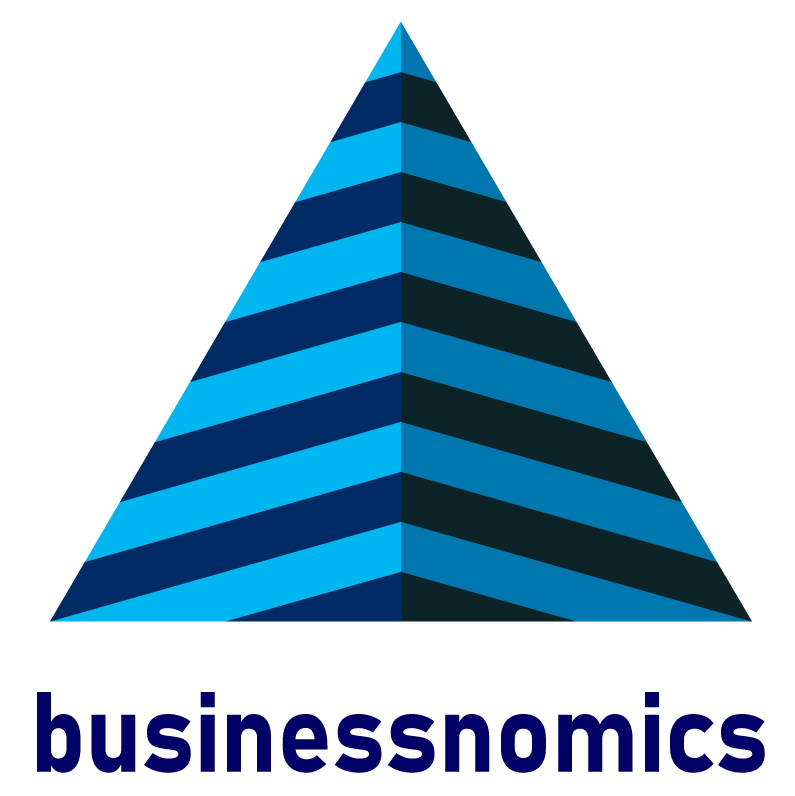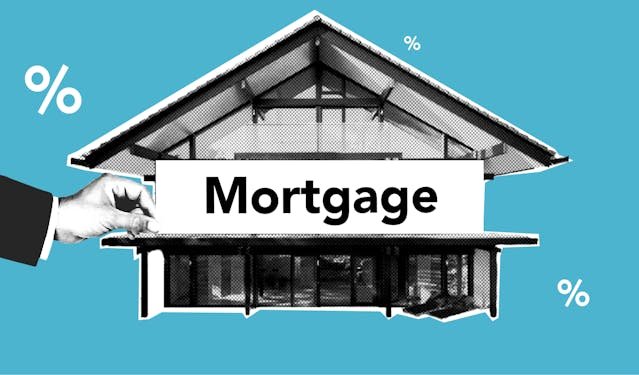Understanding the Purpose of a mortgage in financing the purchase of a Home

Purchasing a home is one of the most significant financial decisions many of us will ever make, and understanding the purpose of a mortgage in financing this purchase is crucial.
A mortgage bridges the gap between your savings and the total cost of the home, allowing you to buy a property without needing the entire amount upfront.
The Role of a Mortgage in Financing the Purchase of a Home
When it comes to buying a home, understanding the role of a mortgage in financing the purchase of the home is essential. A mortgage bridges your current financial resources and the total cost of the property, making homeownership attainable for many people who have a different purchase price saved up.
Explanation of How Mortgages Work
A mortgage is a loan specifically designed to help you buy a home. Here’s a breakdown of how it works:
- Loan Provision: When you secure a mortgage, a lender provides the funds needed to purchase a home. This loan is then paid back over time, typically through monthly payments.
- Interest Rates: Mortgages come with interest rates, which can be fixed (remaining the same throughout the loan term) or variable (changing at specified times based on market conditions). These rates are generally lower than other types of loans due to the security of the property.
- Repayment Terms: Mortgages usually have long repayment periods, commonly 15 or 30 years, allowing you to spread out payments and make homeownership more affordable.
- Security Interest: The property you purchase serves as collateral for the loan. If you fail to make payments, the lender can take possession of the home through foreclosure.
Why Mortgages Are Essential for Home Buyers
For many, a mortgage is not just an option but a necessity. Here’s why:
- Accessibility: Without a mortgage, the dream of homeownership would remain out of reach for most people. It allows you to buy a home without needing the full amount upfront.
- Affordability: Mortgages make home-buying more affordable by spreading the cost over many years. This results in manageable monthly payments instead of a large lump sum.
- Financial Leverage: A mortgage allows you to leverage your existing savings and income to invest in a property that might appreciate in value over time, helping you build wealth.
The Benefits of Using a Mortgage to Finance a Home
Utilising a mortgage to finance your home purchase offers several key benefits:
- Building Equity: As you make payments on your mortgage, you gradually build equity in your home. This equity can be a valuable financial asset, allowing you to borrow against it or profit from the sale of your home in the future.
- Tax Advantages: In many cases, the interest paid on a mortgage is tax-deductible. This can significantly reduce your taxable income and lower your overall tax burden.
- Stability and Predictability: Fixed-rate mortgages offer predictable monthly payments, which can help you budget more effectively and provide financial strength.
- Investment Growth: Real estate typically appreciates over time. By purchasing a home with a mortgage, you invest in an asset that can grow in value, contributing to your long-term financial goals.
Steps to Secure a Mortgage in Financing the Purchase of a Home
Securing a mortgage is a critical step in financing the purchase of a home. Understanding this process can make it smoother and less stressful, especially for first-time buyers. Here’s a comprehensive guide on the steps to secure a mortgage to finance the purchase of a home.
Step 1: Assess Your Financial Situation
Before you start looking for a mortgage, it’s essential to assess your financial health:
- Check Your Credit Score: Your credit score plays a significant role in determining your eligibility for a mortgage and the interest rate you’ll receive. Aim for a score of at least 620, though higher scores can secure better rates.
- Evaluate Your Savings: Ensure you have enough savings for a down payment (typically 20% of the home’s price) and other costs such as closing fees, moving expenses, and emergency funds.
- Calculate Your Debt-to-Income Ratio (DTI): Lenders use your DTI ratio to assess your ability to manage monthly payments. A DTI ratio below 43% is generally preferred.
Step 2: Research and Choose the Right Type of Mortgage
Different types of mortgages offer various benefits:
- Fixed-Rate Mortgage: Offers stable monthly payments with a consistent interest rate over the loan’s term, ideal for long-term planning.
- Adjustable-rate mortgage (ARM): This type of mortgage features lower initial rates that adjust over time based on market conditions, making it suitable for those who plan to sell or refinance before rates increase.
- FHA Loans: Government-backed loans with lower down payment requirements benefit first-time homebuyers with lower credit scores.
- VA Loans: These loans are available to veterans and active-duty military members, and they often require no down payment and favourable terms.
Step 3: Get Pre-Approved for a Mortgage
A mortgage pre-approval gives you a clear picture of how much you can borrow and shows sellers you’re a serious buyer:
- Gather Financial Documents: Prepare documents such as pay stubs, tax returns, bank statements, and employment verification.
- Apply with Multiple Lenders: Compare offers from various lenders to find the best rates and terms.
- Receive Pre-Approval Letter: Once pre-approved, you’ll receive a letter stating the loan amount you qualify for, which you can present to sellers.
Step 4: Find the Right Lender
Choosing the right lender is crucial for a smooth mortgage process:
- Compare Rates and Fees: Look beyond interest rates and consider closing costs, origination fees, and other charges.
- Read reviews and seek Recommendations: Check online reviews and ask friends, family, or your real estate agent for recommendations.
- Assess Customer Service: Choose a lender with excellent customer service and clear communication.
Step 5: Submit Your Mortgage Application
Once you’ve chosen a lender, it’s time to submit your mortgage application:
- Complete the application form: Provide detailed information about your financial status, employment, and the property you intend to buy.
- Submit Required Documents: Include all necessary financial documents as the lender specifies.
- Pay Application Fees: Be prepared to pay any upfront fees the lender requires.
Step 6: Underwriting Process
The underwriting process involves the lender verifying your financial information to assess your loan eligibility:
- Verification of Information: The underwriter will check your income, assets, credit history, and property details.
- Home Appraisal: An appraisal ensures the property’s value matches the loan amount, protecting both you and the lender.
- Title Search and Insurance: A title search ensures the property has no legal issues, and title insurance protects against potential disputes.
Step 7: Closing the Mortgage
Closing is the final step in securing your mortgage:
- Review Closing Disclosure: This document outlines the final loan terms, including interest rate, monthly payments, and closing costs. Review it carefully for any discrepancies.
- Sign Closing Documents: You’ll sign various documents to finalise the mortgage agreement.
- Pay Closing Costs: Be prepared to pay closing costs, typically ranging from 2% to 5% of the home’s purchase price.
- Receive the Keys: Once everything is signed and payments are made, you’ll receive the keys to your new home.
Factors to Consider When Choosing a Mortgage in Financing the Purchase of a Home
Choosing the right mortgage to finance a home is a critical decision that can impact your financial health for years to come. Here are several key factors to consider to ensure you make the best choice:
Interest Rates
Interest rates significantly affect the total cost of your mortgage. Here’s what you need to know:
- Fixed vs. Variable Rates: Fixed-rate mortgages keep the same interest rate for the entire loan term, providing stability and predictability in your monthly payments. Variable-rate mortgages, on the other hand, have rates that can change periodically, often starting lower but potentially increasing over time.
- Current Market Rates: Monitor current mortgage rates, which fluctuate based on economic conditions. A lower rate can save you thousands over the life of the loan.
Loan Term
The length of your mortgage term affects your monthly payments and the interest you’ll pay overall.
- 15-Year vs. 30-Year Mortgages: A 15-year mortgage will have higher monthly payments but lower total interest costs, allowing you to pay off your home faster. A 30-year mortgage offers lower monthly payments, making it easier to manage your budget, but you’ll pay more interest over time.
Down Payment
Your down payment is crucial to determining your mortgage terms and monthly payments.
- Percentage of Purchase Price: Lenders typically require a down payment ranging from 3% to 20% of the home’s purchase price. A larger down payment can reduce your loan amount and monthly payments and potentially eliminate the need for private mortgage insurance (PMI).
- Impact on Loan Terms: A higher down payment often results in better loan terms, including lower interest rates and fewer fees.
Private Mortgage Insurance (PMI)
If your down payment is less than 20%, most lenders will require you to pay for PMI, which protects the lender if you default on the loan.
- Cost of PMI: PMI typically costs between 0.3% and 1.5% of the original loan amount per year, which can significantly increase your monthly mortgage payment.
- Eliminating PMI: You can avoid or eliminate PMI by making a larger down payment or, in some cases, by reaching a certain amount of equity in your home.
Loan Types
Different types of mortgages are available to suit various financial situations.
- Conventional Loans: These are not insured by the federal government and usually require higher credit scores and larger down payments.
- FHA Loans: Insured by the Federal Housing Administration, these loans are popular among first-time homebuyers for their lower down payment and credit score requirements.
- VA Loans: VA loans are available to veterans and active-duty service members. VA loans offer benefits like no down payment and no PMI.
- Adjustable-Rate Mortgages (ARMs): These loans start with a fixed interest rate for a set period and then adjust periodically. They can be beneficial if you plan to sell or refinance before the rate adjusts.
Closing Costs
Closing costs are fees you pay to finalise your mortgage, which can add up to 2-5% of the loan amount.
- Standard Fees: These include appraisal fees, attorney fees, title insurance, and loan origination fees.
- Negotiating Costs: Some lenders may offer to cover certain closing costs or roll them into the loan amount. It’s worth negotiating to minimise these expenses.
Lender Reputation and Service
The lender you choose can impact your mortgage experience.
- Research and Reviews: Look for lenders with positive reviews and a strong reputation for customer service. A reliable lender will provide clear communication and support throughout the mortgage process.
- Loan Options and Flexibility: Ensure the lender offers a range of loan options that meet your needs and is willing to work with you to find the best terms.
The Impact of Credit Score on Getting a Mortgage in Financing the Purchase of a Home
When it comes to financing the purchase of a home, your credit score plays a pivotal role. This three-digit number can significantly influence your ability to secure a mortgage, the type of mortgage you qualify for, and the interest rates you’ll pay over the life of the loan. Understanding how credit scores affect mortgage options is crucial for anyone navigating the home-buying process smoothly and efficiently.
Understanding Credit Scores
A credit score is a numerical representation of your creditworthiness based on your credit history. Lenders use this score to assess the risk of lending you money. Scores typically range from 300 to 850, with higher scores indicating better creditworthiness. Your payment history, the amount of debt you owe, the length of your credit history, any recent credit inquiries, and the types of credit you have used are just a few of the variables that affect your credit score.
Why Credit Scores Matter in Mortgage Financing
Eligibility for a mortgage:
- Lenders have minimum credit score requirements for different types of mortgages. For example, you usually need a credit score of at least 620 to qualify for a conventional mortgage. FHA loans might be available to those with lower scores, but even these loans have minimum score requirements.
Interest Rates:
- Your credit score directly impacts the interest rate you’ll receive. Borrowers with higher credit scores are deemed less risky and are typically offered lower interest rates. Even a slight difference in interest rates can translate to thousands of dollars in savings over the life of a mortgage.
Loan Terms and Conditions:
- Higher credit scores can give you access to more favourable loan terms. This can include lower down payments, reduced private mortgage insurance (PMI) requirements, and better overall loan conditions. Conversely, lower credit scores may limit your options and lead to stricter terms.
Steps to Improve Your Credit Score for Better Mortgage Options
Review your credit reports:
- Obtain free copies of your credit reports from the three major credit bureaus: Equifax, Experian, and TransUnion. Review these reports for errors or discrepancies and dispute inaccuracies to ensure your credit report reflects accurate information.
Pay bills on time:
- Payment history is the most significant factor in your credit score. Consistently paying your bills on time can positively impact your score. Set up reminders or automatic payments to avoid missing due dates.
Reduce outstanding debt:
- Lowering your credit card balances can improve your credit utilisation ratio, which is the percentage of your available credit that you’re using. Aim to keep your utilisation below 30% of your credit limit.
Avoid opening new credit accounts:
- Each time you apply for new credit, a hard inquiry is made on your credit report, which can temporarily lower your score. Avoid opening new accounts unless necessary.
Keep old accounts open.
- The length of your credit history matters. Keeping older accounts open can help increase the average age of your credit accounts, positively influencing your score.
The Long-Term Benefits of a Good Credit Score
Having a good credit score helps you secure a mortgage and offers long-term financial benefits. Lower interest rates mean lower monthly payments, allowing you to save more money or pay off your mortgage faster. Additionally, a strong credit profile can provide better access to other financial products and opportunities in the future.
Common Pitfalls to Avoid with a Mortgage in Financing the Purchase of a Home
When it comes to using a mortgage to finance the purchase of a home, it’s easy to make mistakes that can have long-term consequences. Here are some common pitfalls to avoid when securing a mortgage.
Overextending Your Budget
One of the biggest mistakes homebuyers make is purchasing a home beyond their means. Lenders may approve you for a higher loan than you can comfortably afford. It’s crucial to consider all your monthly expenses, including utilities, groceries, transportation, and savings when determining how much you can realistically spend on your mortgage. Overextending yourself can lead to financial stress and potential foreclosure if you can’t keep up with the payments.
Ignoring Your Credit Score
Your credit score significantly affects your mortgage terms. A higher credit score can secure a lower interest rate, saving you thousands of dollars over the life of the loan. Before applying for a mortgage, check your credit report for errors and take steps to improve your score by paying down debts and making timely payments. Ignoring your credit score could mean higher interest rates and less favourable loan terms.
Failing to Get Pre-Approved
Getting pre-approved for a mortgage gives you a clear idea of how much you can borrow and shows sellers that you are a serious buyer. Without pre-approval, you risk falling in love with a home you can’t afford or losing out to other pre-approved buyers. It also helps streamline the home-buying process, making it quicker and less stressful.
Neglecting to Shop Around for Lenders
Not all mortgage lenders are created equal. Interest rates, fees, and loan terms can vary significantly from one lender to another. Take the time to shop around and compare offers from multiple lenders. A difference of even a half percentage point in the interest rate can save you substantial money over the life of your loan. Don’t settle for the first offer you receive; doing your homework can pay off in the long run.
Overlooking Additional Costs
When budgeting for your home purchase, it’s essential to consider more than just the mortgage payment. Additional costs such as property taxes, homeowners insurance, maintenance, and repairs can add up quickly. Overlooking these expenses can strain your finances and make homeownership less enjoyable. Make sure to factor in all potential costs to avoid unpleasant surprises.
Making Large Purchases Before Closing
Once you’ve been approved for a mortgage, it’s essential to maintain your financial status quo. Making large purchases on credit or taking out new loans can alter your debt-to-income ratio and jeopardise your mortgage approval. Avoid buying big-ticket items like cars or furniture until after you’ve closed on your home. Any changes to your financial situation can raise red flags with your lender.
Not Understanding Mortgage Terms
Mortgages come with various terms and conditions that can significantly impact your financial future. It’s essential to understand the different types of mortgages available, such as fixed-rate and adjustable-rate mortgages, and the implications of each. Additionally, be aware of prepayment penalties, which can charge extra fees for paying off your loan early. Educating yourself on mortgage terms can help you make an informed decision and avoid costly mistakes.
Skipping the Home Inspection
A home inspection is a critical step in the home-buying process. It can reveal hidden issues that might not be apparent during a casual walk-through, such as structural problems, electrical issues, or plumbing deficiencies. Skipping the inspection to save money can lead to expensive repairs. Always invest in a thorough home inspection to ensure the property is in good condition and avoid future headaches.
Forgetting to Lock in Your Interest Rate
Mortgage interest rates can fluctuate daily. You must lock in your rate to avoid a higher interest rate when you close on your home. Once you find a favourable rate, ask your lender about locking it in to protect yourself from potential increases. This can provide peace of mind and ensure you get the best possible rate for your mortgage.
Overlooking Loan programmes
Various loan programmes are available to help different types of buyers, such as first-time homebuyers, veterans, and those with lower incomes. These programmes can offer lower interest rates, reduced down payments, and other benefits. Researching and taking advantage of these programmes can make homeownership more accessible and affordable. Don’t assume you don’t qualify; explore all your options to find the best fit for your situation.
Avoiding these common pitfalls can make the process of securing a mortgage to finance the purchase of a home smoother and more successful. You can confidently navigate the home-buying journey and make informed financial decisions by being aware of these potential mistakes and taking proactive steps to avoid them.
The Long-Term Financial Implications of a Mortgage in Financing the Purchase of a Home
Securing a mortgage to finance the purchase of a home is a significant financial commitment that extends far beyond the initial excitement of buying property. Understanding the long-term financial implications of a mortgage is crucial for making informed decisions that can impact your financial well-being for decades.
Interest Payments
One of the most substantial long-term costs associated with a mortgage is the interest you pay over the life of the loan. Even a slight difference in interest rates can result in significant savings or expenses. For example, a 30-year mortgage with a 4% interest rate will cost considerably more than the same loan at a 3.5% rate. To minimise these costs, consider shopping for the best rate, improving your credit score, or opting for a shorter loan term.
Equity Building
As you make monthly mortgage payments, you gradually build equity in your home. Equity represents the portion of your home that you own outright and can be a valuable financial asset. Building equity takes time, especially in the early years of a mortgage, when a more significant portion of your payments go towards interest. However, the balance shifts over time and more of your payments go towards the principal, increasing your equity.
Home Value Appreciation
Real estate has the potential to appreciate in value over time, which can enhance the financial benefits of homeownership. While not guaranteed, a well-chosen property in a desirable location can increase in value, providing you with additional equity. This appreciation can be a significant financial advantage, but it’s important to remember that the real estate market can also experience downturns.
Tax Benefits
Owning a home comes with several tax benefits that can positively impact your long-term financial situation. Mortgage interest and property taxes are typically deductible on your federal income tax return, potentially lowering your tax bill. Additionally, if you sell your home after living in it for at least two years, you may qualify for a capital gains tax exclusion on the profit. These tax advantages can offset some of the costs associated with homeownership.
Maintenance and Repairs
Owning a home allows you to build equity and potentially benefit from property appreciation, but it also comes with ongoing maintenance and repair costs. Over the long term, these expenses can add up. Regular maintenance, such as roof repairs, plumbing fixes, and landscaping, is essential to preserve your home’s value and prevent costly issues down the road. Budgeting for these expenses is crucial to avoid financial strain.
Refinancing Opportunities
Refinancing your mortgage can be a strategic financial move that can save you money over the long term. By refinancing, you might secure a lower interest rate, reduce your monthly payments, or shorten your loan term. However, refinancing also involves costs such as closing fees and potential prepayment penalties. Carefully consider the benefits and drawbacks before deciding to refinance.
Long-Term Financial Stability
A mortgage is a long-term commitment that can affect your overall financial stability. Consistently making mortgage payments helps build a positive credit history, which can benefit you in other areas of your financial life, such as securing loans for other major purchases. Conversely, missing payments or defaulting on your mortgage can severely damage your credit and lead to foreclosure, impacting your financial future.
Retirement Planning
Your mortgage can play a role in your retirement planning. Paying off your mortgage before retirement can reduce your monthly expenses, allowing you to stretch your retirement savings further. Alternatively, you could downsize to a smaller home, using the equity from your current home to finance the purchase. Planning your mortgage strategy with your retirement goals can help ensure long-term financial security.
Impact on Lifestyle
The financial commitment of a mortgage can influence your lifestyle choices. Allocating a significant portion of your income to mortgage payments might limit your ability to spend on travel, hobbies, or other personal interests. It’s essential to balance homeownership with a lifestyle that brings you joy and satisfaction.
Wealth Building
Ultimately, a well-managed mortgage can be a powerful tool for wealth building. By making wise financial decisions, such as choosing an affordable home, securing a favourable interest rate, and consistently building equity, you can turn your home into a valuable asset that contributes to your long-term financial success.
Final Thoughts
Understanding the purpose of a mortgage in financing the purchase of a home is crucial for anyone considering homeownership. A mortgage provides a practical solution for individuals and families to buy a house without needing the full purchase price upfront. It allows you to spread the cost over many years, making homeownership accessible and achievable.
However, it’s essential to approach a mortgage with a clear understanding of its long-term financial implications. From interest payments and maintenance costs to your lifestyle and retirement planning, a mortgage affects various aspects of your financial life.
By doing so, you can make informed decisions that align with your financial goals, ensuring that your journey to homeownership is both fulfilling and financially sound.

















